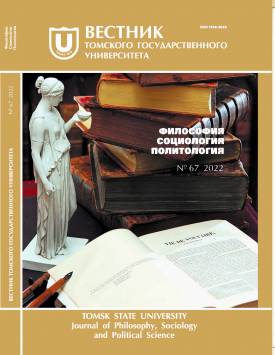Abductive step in dialogs. An informal approach
The paper scrutinizes contemporary treatments of abduction, as they occur in logic, epistemology and philosophy of science. It demonstrates how these positions can be adapted to the argumentation theory needs. The publication begins with a brief historical survey and continues with two major contemporary approaches of abduction studies presentation (the Magnani conception and the model of Gabbay and Woods). The last section analyzes contemporary treatments of abduction from the dialectical perspective. First of all, this step specifies the role of dialogs (Hintikka has already pointed to the advantages of the interrogative essence of abduction). Second, it clarifies the differences between abduction and explanation as well as between abduction and heuristics. Formal models or logics of abduction are mostly left aside. Due to Peirce’s famous solution, abduction is an inference that provides a reason to suspect that the hypothesis is true. Peirce’s scheme (Harvard lectures) provides a general understanding of abduction but ignores some problems: it is not clear, if we generate a hypothesis or adapt it, how the hypothesis appears, etc. As a result, abduction has been linked with reasoning to the best explanation. One of such solutions belongs to Josephson and Josephson. Their scheme had a great impact on the theory of argumentation. It was turned into a skeleton of Walton’s argumentative scheme of abduction (the most influential scheme). Today we know that abduction should be better understood as an inference from the best expatiation rather than an inference to the best explanation. It is ignorance-preserving. The Gabbay-Woods model develops a similar treatment. It competes with another famous solution that belongs to Magnani. Both approaches reconstruct and explain the essence of abduction, but they have different assessments concerning its epistemological aims. If the first one classifies abduction as an ignorance-preserving inference, the latter protects its creative side (abduction has a knowledge-enhancing faculty). The Gabbay-Woods model is comparable with Peirce’s abduction understanding that has been recently discovered and reconstructed by Pietarinen. Peirce claims that abduction presumes interrogative mood and conjectural nature. It does not assert the truth but delivers the idea of a matter of course, rendering that idea is comparatively simple and natural. The paper argues that the Gabbay-Woods model, enriched by Peirce’s ideas, can be integrated into a dialog. It emphasizes the dialectical core of abduction and simplifies the analysis of existing argumentation schemes. The author declares no conflicts of interests.
Keywords
abduction, dialog, argumentative schemesAuthors
| Name | Organization | |
| Bobrova Angelina S. | Russian State University for the Humanities; National Research University Higher School of Economics | angelina.bobrova@gmail.com |
References

Abductive step in dialogs. An informal approach | Tomsk State University Journal of Philosophy, Sociology and Political Science. 2022. № 67. DOI: 10.17223/1998863X/67/1
